We all love our kids and want to keep them safe. But we also want to teach them responsibility and independence. Many RVing families struggle with balancing those two goals at the campground. How do we know this? Because we get asked about campground safety all the time.
Emails, direct messages, posts in our Facebook Group.
We’ve seen different versions of the same question countless times over the past few years. People ask us if we let our kids ride their bikes by themselves or go to the playground alone. They ask us how to manage having multiple kids who want to do different activities.
And we usually duck out of answering the question.
Why?
Because every child is different. And every parent is different. And every campground is different.
There’s just no hard and fast rules for this sort of thing, so we mostly avoid answering the question.
Until now.
Don’t get me wrong. There’s still no hard and fast rules. But we’re ready to share our own views on campground safety, and some of our strategies for keeping our own kids safe while also giving them age-appropriate independence.
We’ve been RVing with our children since our oldest boys were 11 months old. They are now nine. We also have a five year old who has practically been raised at the campground. So we’ve been through some pretty tricky developmental stages, and we’ve got more ahead of us. Hopefully some of our experiences will help you navigate the rough waters of parenting.
Campground Safety for Babies and Toddlers
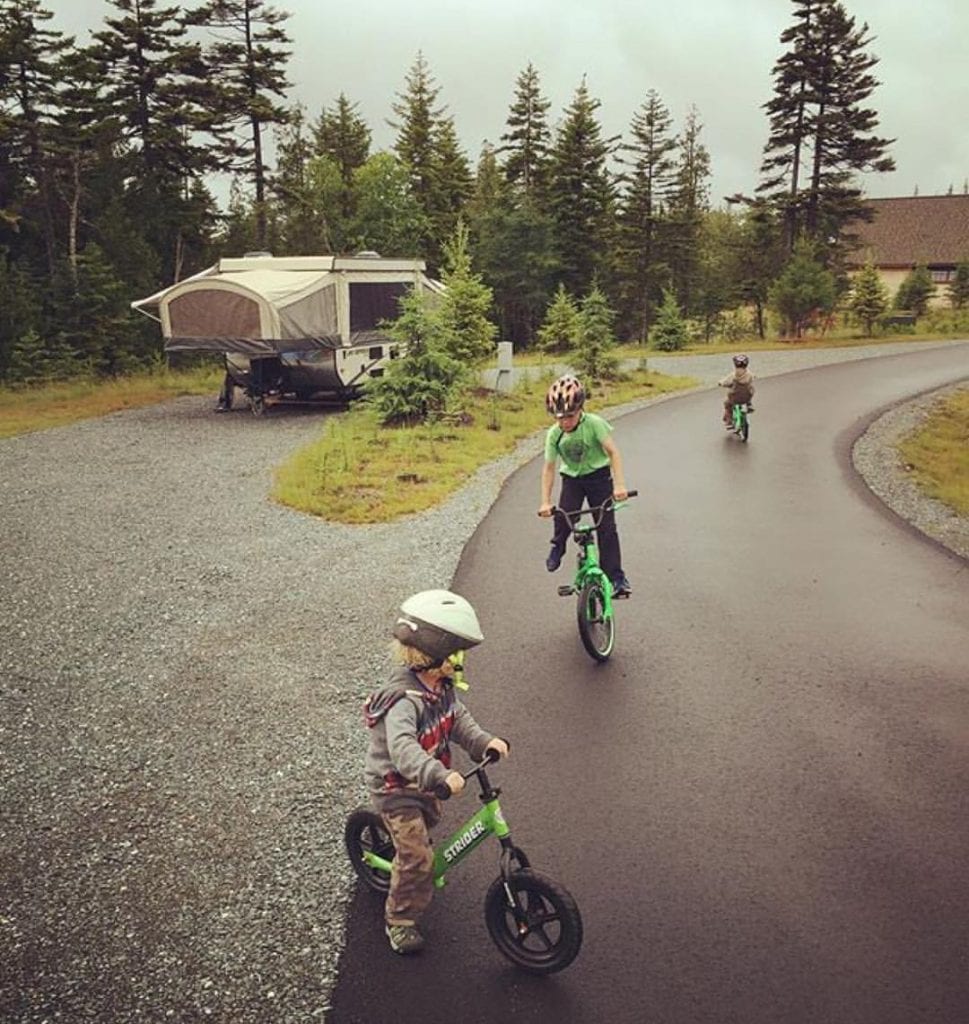
If you are bravely introducing your babies and toddlers to the camping life, we salute you. No matter what those other parents say, we KNOW it is hard work to be adventurous with little ones.
Our number one tip for getting through this stage (when most of the food ends up on the ground and most of the dirt ends up in the mouth) is to divide and conquer. It’s just so much easier for one person to be solely in charge of the tiny human that is bent on destruction. When any of our three kids were in the 0-3 year old range, one parent was on baby duty while the other was on set up, break down, or dinner duty.
We found that trouble happened when both parents were trying to ‘get stuff done’. That’s when you would hear someone yell, “Get out from under the camper!”
Or, “Did anyone see Wes?”
The divide and conquer strategy got us through those tough years when every stick and rock is a potential weapon. If I was cleaning the camper, Jeremy had the kids at the playground. If Jeremy was hitching up, I was taking them all for a walk.
Just abide, parents. It does get easier.
Campground Safety for Young Children (4-7)

Once your child stops eating sand and running into the road at regular intervals, campground safety definitely gets a lot simpler. Or does it?
At the ages of about four to seven years old, many parents struggle with setting boundaries while also giving kids a bit of independence.
For some, it might be pretty clear cut: never allow a child to be alone at the campground. But other parents remember the sort of independence we had in our youth and want to give a taste of that to their kids.
We recall riding our bikes through the neighborhood without any adult supervision. Or coming home only when the streetlights turned on. For us, the campground is a great place to let the kids stretch their wings a bit.
So if you want to raise a responsible, independent child, then start the hard work when they are as young as four. Think about all the skills that it would take for a child to be safe at the campground, and begin training them very early on. Examples from our personal experience include:
- Car and Bicycle Awareness: We had our boys stop at the edge of the road and wave to cars that were driving by.
- Campsite Awareness: We always had our boys memorize our site number so they could get help if they got lost or separated.
- Basic Stranger Training: Give specific guidance in what adults to seek out in case of trouble (employees, mothers with other children). Talk about neighborly questions and tricky questions from other adults.
- Role Play Scenarios: I consistently ask my boys what they would do in certain circumstances. We talk about getting hurt, getting lost, other kids misbehaving, etc.
If you do these things for years, your children will be so much more prepared when they finally get old enough for some real independence at the campground.
Campground Safety for Kids Who are Ready for Some Independence
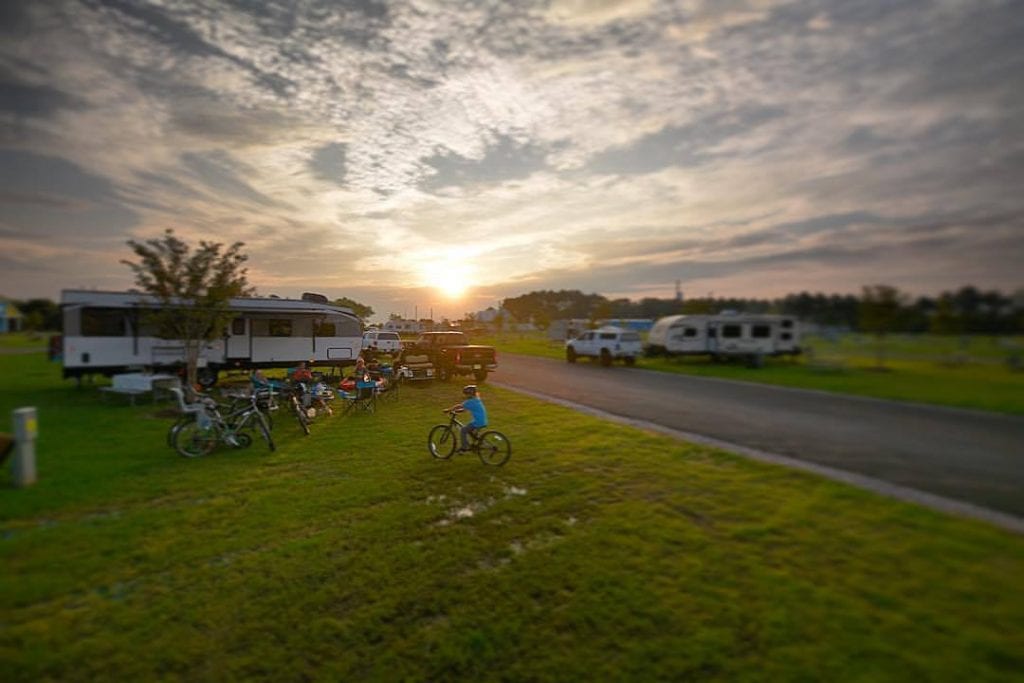
My boys like to ask me how old they have to be before I FINALLY let them walk home from the bus stop by themselves. I answer that there is no age, there is a level of responsibility. They hate my answer, but it’s true.
There’s no single age when kids are all the sudden capable of going to the playground or the camp store by themselves. But I can tell you that as an elementary school teacher, many districts allow kids to independently ride their bikes and walk to and from school in third grade. I think that’s a great guideline for parents to use.
However, before your kids are eight or nine, you should be giving them tons of smaller opportunities to practice being independent. Here are a few things we did as our boys showed a bit more maturity over the last few years:
- Reserve a campsite just a few sites down from the playground, so your kids can play ‘by themselves’ but you can watch them carefully from afar.
- Let them ride in bicycle ‘loops’ that you have pre approved.
- Let them go into the camp store to buy something while you stay outside.
- Have them ‘lead’ you back to your campsite, so you get a sense of their navigation abilities.
- Let them go into the arcade by themselves while you wait outside.
When our nine year olds finally showed enough maturity to go play at the Gaga ball pit by themselves, our favorite safety device was a set of walkie talkies that helped us stay in constant contact with them.
We practiced with those things from the time they were five years old. We check in every 10 minutes or so and they know they have to respond right away.
Campground Safety for Pre Teens and Teens

Once your kids enter into those double digits, I’m going to be honest, it’s not really about them so much. You have to be sure that your pre teens and teens are mature enough not to be a danger to the younger kids at the campground.
One of the biggest campground etiquette complaints we hear is from parents of younger kids. They hate it when groups of older kids take over jump pillows, playgrounds, or pools and act in a way that makes it unsafe for the little ones.
If you are going to let your older kids enjoy the campground amenities and facilities independently, you have to do some legwork in advance. Talk very specifically about bicycle safety and watching out for younger children.
And of course, it’s always worth repeating. Remind them every single time you unhitch at a new campground to never, ever get into another person’s car or go into another person’s RV. Ever.
Campground Safety: The Wrap Up
The most important part about keeping your child safe at a campground is to pay a ton of attention to your child’s maturity level and your campground environment. No two campgrounds are the same and my boys know the rules might change from place to place. We once pulled into a huge campground with scattered loops that were like mazes. The very first thing I said was, no independent bike riding here. The older two boys moaned and groaned, but I held firm.
And now I have to go pick them up from the bus stop.
See you at the campground,
Stephanie


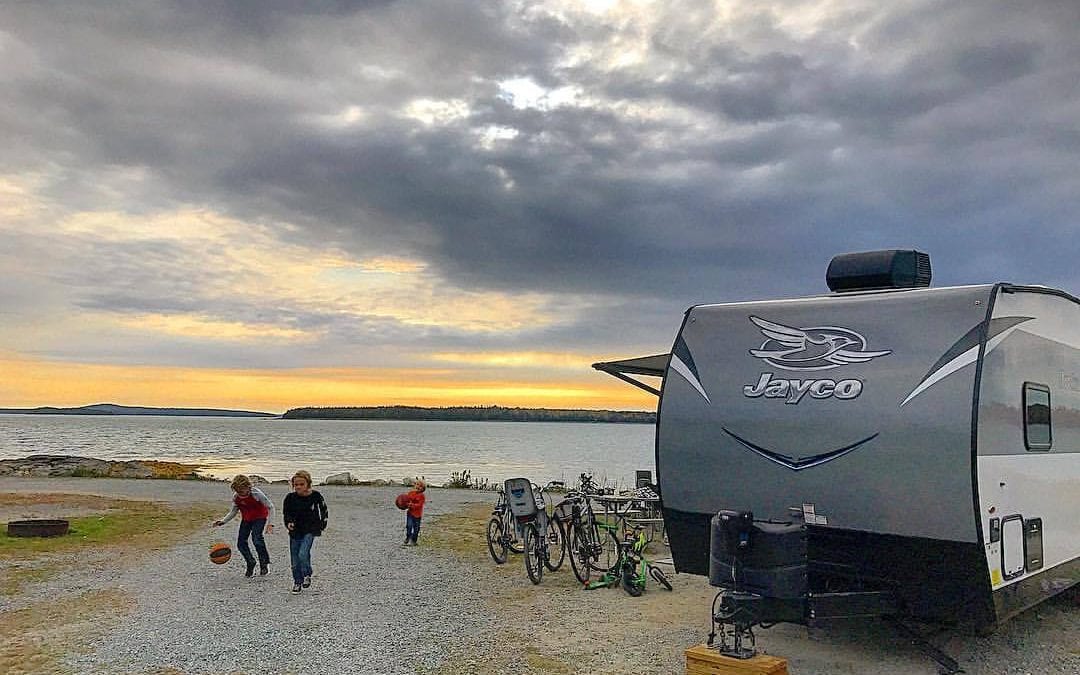
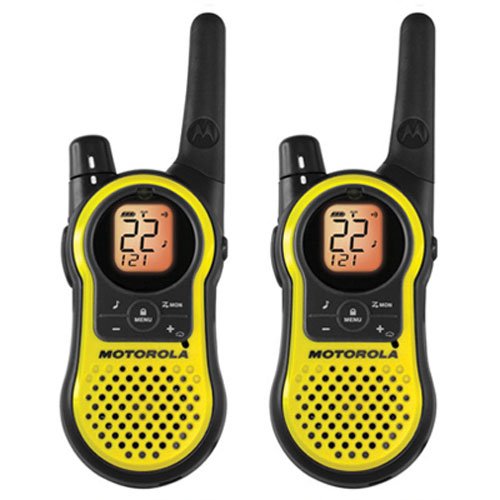



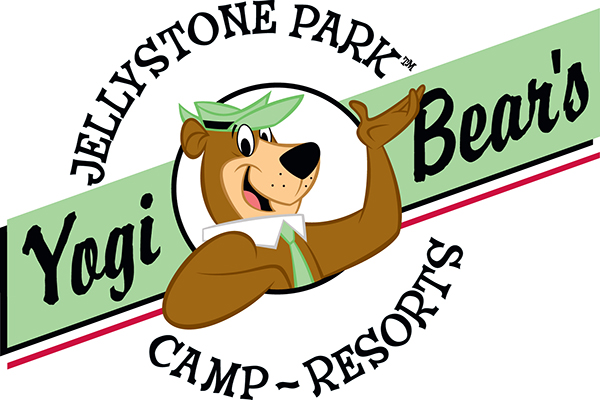
Stephanie,
This was an awesome post. We completely understand the challenge, especially from family and friends asking how we do it, and their fear with something they don’t understand. We have been full time for almost 9 months now with 2yo and 4yo girls. It is funny seeing our 4yo go from being an introvert to a total extravert. She now wants to say hi to everyone, and would invite herself in every RV in the park if she could, especially if they have a dog. Getting her to open up was a challenge, and now getting her to understand etiquette and safety is next.
The main thing we hear from family and friends who don’t understand the campground life is usually based in fear. We have learned for every person we have met that makes us a little nervous, there are a hundred sweet grandparents out there hapily watching our kids play and readily sharing their opinions if they don’t like something our kids are doing.
There are many challenges to fulltime traveling with kids, but the benefits far outweigh those pitfalls. The experiences they are already having and ways we are seeing their minds grow, and most especially, the fact that we are around to be a part of it has made it all worth while.
Thanks again for your post and all the advice you share. Hopefully we will run into you out in the world some day.
They are all great tips! There are two things I would absolutely add. The first is if kids leave the campsite they have to let a parent know where they are going and who they are going with every single time they leave. The second is “always use the buddy system.” I have been camping since I was a kid and these rules have been essential!
Such good points. And I always remind them that if they leave the place they are going (head from the gaga ball pit to the playground) they have to check back in. The buddy system is so important, also!
My friends and I do a lot of wilderness camping around our little town and we know the area well, but my niece, when she was 6-7-8 yrs old if she walked around the area she had to keep the campers in sight at all times. I also bought her a whistle that was only to be blown when she felt she was in trouble or out of sight of the camp and to stay where she was and we would come to her. I took lots of walks with her and pointed out to her that no matter how pretty things were, don’t touch them, look, but don’t touch, especially bushes with berries. If she wanted us to see them, come get us. I guess I could go on and on about little things, but when in the wilderness, even at a small campground, ALWAYS be aware of where the child is!!